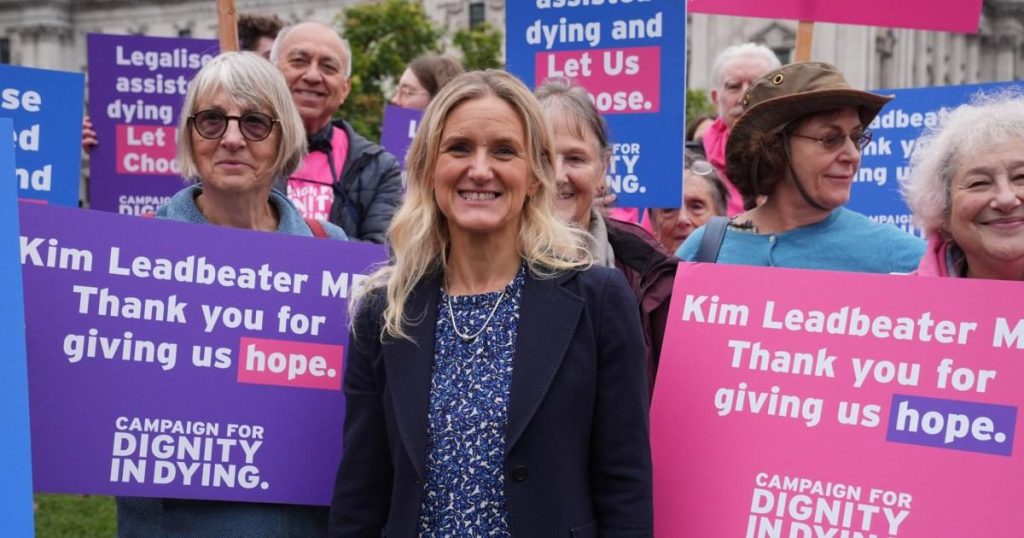Labour MP Kim Leadbeater has proposed a Bill on assisted dying that will go to a vote in Parliament on November 29. Former Justice Secretary Lord Falconer, a high-profile supporter of the proposed law, has estimated that ‘some thousands’ of people in the UK could end their own lives through assisted dying if the Bill passes. The legislation would allow people over the age of 18 who are terminally ill and of sound mind to end their lives with the agreement of two independent doctors and a High Court judge. This vote will mark the first time since 2015 that Parliament will consider changing the law on assisted dying.
Prime Minister Keir Starmer has allowed MPs a free vote on the issue, enabling them to make a decision based on personal beliefs rather than party influence. Supporters of the Bill, including Lord Falconer and lead sponsor Kim Leadbeater, argue that legalising assisted dying will provide relief to those facing terminal illnesses. Sally Talbot, an MP in Western Australia where assisted dying is legal, reported that over 1,800 people had requested assistance, with a relatively small percentage actually proceeding with the process. The debate on assisted dying in the UK continues to evolve as MPs weigh the potential impact and ethical considerations of the proposed legislation.
Despite the shifting attitudes towards assisted dying since 2015, many MPs remain undecided on the issue as the vote approaches. Kit Malthouse, a Conservative supporter of the Bill, noted a significant change in sentiment over the past few years. However, some MPs, like ENT surgeon turned MP Peter Prinsley, remain cautious about the Bill’s passage based on conversations with colleagues. Prinsley observed a generational divide among MPs, with older members more inclined to support the Bill while younger members harbor greater reservations. Kim Leadbeater believes that personal experience with end-of-life care influences MPs’ positions on the issue.
Cabinet ministers such as Justice Secretary Shabana Mahmood and Health Secretary Wes Streeting have expressed opposition to the Bill, citing concerns about the quality of palliative and end-of-life care. Streeting emphasized the importance of ensuring that individuals have access to comprehensive care options before considering assisted dying. Keir Starmer, while refraining from influencing MPs’ decisions, highlighted the significance of safeguards in any legislation pertaining to assisted dying. The ethical implications and potential repercussions of legalising assisted dying continue to be a subject of intense debate and scrutiny among MPs and the public.
Various groups, including Christian organizations, have voiced their opposition to the Bill, expressing concerns about the sanctity of life and the potential impact on vulnerable individuals. Protesters have gathered outside Parliament to advocate against the proposed legislation, underscoring the contentious nature of the issue. As the debate unfolds within Parliament and broader society, the decision on the assisted dying Bill will have far-reaching implications for individuals facing terminal illnesses and the healthcare system at large. The upcoming vote represents a pivotal moment in the ongoing discourse on end-of-life choices and the balance between autonomy and ethical considerations in healthcare decision-making.


